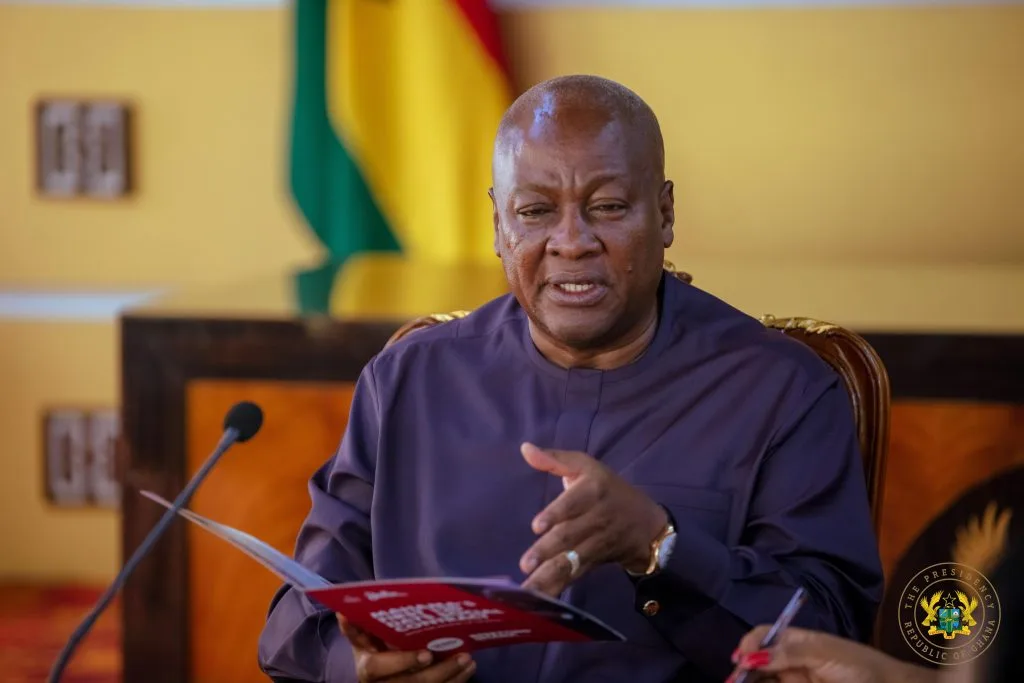Ghana Unveils Feed Ghana Programme to Cut $400M Annual Chicken Import Bill
President Mahama Launches Comprehensive Agricultural Initiative to Boost Food Security and Reduce Import Dependency
Ghana’s staggering annual expenditure of nearly $400 million on chicken imports has been labeled a “national embarrassment” by President John Dramani Mahama during the landmark launch of the government’s Feed Ghana Programme in Techiman, Bono East Region. This comprehensive initiative aims to transform the country’s agricultural landscape and significantly reduce its dependency on imported food products.
Breaking the Import Dependency Cycle
Speaking to an audience of agricultural stakeholders, President Mahama unveiled an ambitious plan to support 54 individuals in producing four million birds, equivalent to 10,000 metric tons of chicken. This initiative represents a critical first step in reversing Ghana’s heavy reliance on imported poultry products.
“The Feed Ghana Programme presents a proactive initiative rather than just a policy,” emphasized President Mahama, calling for collective responsibility from all sectors of society to ensure its success.
Five Key Components of the Feed Ghana Programme
1. Smart Agriculture through Nationwide Farmers’ Service Centers
The program will establish a network of farmers’ service centers across Ghana, providing essential support including:
- Mechanization services
- Quality agricultural inputs
- Financial assistance
- Market access facilitation
- Primary processing capabilities
- Comprehensive farmer training
Additionally, the initiative includes the creation of farm banks and land banks in irrigable zones specifically designed to support young agri-entrepreneurs and boost national food production capacity.
2. Grains and Legumes Development
The second component focuses on increasing the production of essential crops:
- Maize
- Rice
- Soya beans
- Sorghum
These crops will serve domestic consumption needs, support local agro-processing industries, and potentially create new export opportunities, helping to improve Ghana’s agricultural trade balance.
3. The “Yeredua” Vegetable Development Project
This component aims to reduce Ghana’s dependency on imported vegetables from neighboring countries by promoting domestic cultivation through:
- Investment in greenhouse technologies
- Urban and peri-urban agriculture development
- School-based backyard gardening initiatives
According to recent FAO statistics, enhanced vegetable production could significantly improve both nutritional outcomes and economic opportunities for small-scale farmers.
4. Institutional and Household Farming
The fourth component encourages self-sufficiency at the institutional and household levels by:
- Promoting home cultivation of vegetables such as tomatoes, peppers, and garden eggs
- Supporting Senior High Schools in accessing land for crop production and livestock rearing
- Creating sustainable food systems within educational institutions
5. “Nkoko Nketenkete” Poultry Revival Project
The final component specifically targets the revitalization of Ghana’s poultry sector, which has struggled against cheaper imports for decades despite the country having historical strength in local poultry production.
Livestock Development Beyond Poultry
President Mahama also highlighted the government’s renewed focus on comprehensive livestock development, which includes:
- Enhanced production of cattle, goats, and sheep
- Improved access to high-quality breeds
- Development of agro-production enclaves
- Investment in critical infrastructure:
- Irrigation systems
- Road infrastructure improvements
- Power supply expansion
- Establishment of warehousing facilities
These investments are strategically designed to attract private sector participation, creating a sustainable ecosystem for agricultural growth.
Tangible Support Already Underway
Demonstrating immediate commitment to the programme, President Mahama presented essential agricultural resources to key institutions including the Ghana Prisons Service and National Service Authority:
- Maize seeds
- Fertilizers
- A Kia truck
- Tractors
These resources are expected to jumpstart implementation efforts across participating institutions.
Challenges and Collaborative Approach
While acknowledging existing challenges in Ghana’s agricultural sector, President Mahama expressed confidence in the programme’s potential for success. He emphasized the importance of collaboration among:
- Farmers
- Agribusinesses
- Financial institutions
- Development partners
This multi-stakeholder approach aligns with best practices in agricultural development and increases the likelihood of sustainable outcomes.
Long-Term Vision for Ghana’s Agricultural Transformation
The Feed Ghana Programme represents a comprehensive approach to agricultural development with objectives including:
- Increased food production and improved food security
- Modernization of farming practices
- Infrastructure improvement in rural agricultural areas
- Establishment of agro-industrial zones across the country
By addressing multiple aspects of the agricultural value chain simultaneously, the programme aims to create lasting change in Ghana’s food production capabilities.
Join the Agricultural Transformation
Are you involved in Ghana’s agricultural sector? The Feed Ghana Programme presents numerous opportunities for farmers, agribusinesses, investors, and supporting organizations to participate in this national transformation.
Take Action Today:
- Contact your local agricultural extension office to learn how you can participate in the programme
- Explore investment opportunities in Ghana’s emerging agro-industrial zones
- Consider partnerships with educational institutions implementing agricultural initiatives
- Visit the Ministry of Food and Agriculture website for detailed information about programme components and application processes



